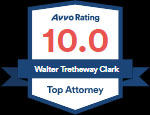In recent years, fake service animals have become a significant problem across the country. Some states are now beginning to enact laws aimed at preventing people from passing off their pets as service animals.
What Are Service Animals?
Service animals are specially trained to perform tasks for their owners who have disabilities. They were originally used for people with hearing and vision impairments, but they are now also used for individuals in wheelchairs and people with medical conditions like low blood sugar. They can even be used to help individuals with autism and certain mental illnesses. According to the American Humane Association, there are about 20,000 service dogs working in the U.S.
Why Are Fake Service Animals a Problem?
In contrast, ordinary pets are not trained the way service animals are. In many cases, they end up misbehaving in private establishments and even creating problems for people with legitimate service dogs. For example, a Massachusetts woman in a wheelchair was in an elevator with her yellow lab service dog when a woman entered the elevator with a teacup poodle in her purse. The poodle leaped from the purse and bit the service dog. The poodle’s owner initially lied about her dog being a service animal, then eventually admitted the dog was just a pet.
What Can Businesses Do?
The American with Disabilities Act requires all establishments that are open to the public to allow access to service dogs. Proprietors can only ask two questions: whether the dog is required because of a disability, and what tasks the dog is trained to do. They cannot ask for documentation verifying the disability or the dog’s qualifications.
Will the Laws Work?
So far, 19 states have enacted laws against people passing their pets off as service animals. However, the laws are difficult to enforce, as anyone can but their pet a vest to pass it off as a service animal. Moreover, there is no service animal certification or official registry of service dogs. Thus, there is no official way to verify whether a dog is a trained service animal.
Advocates for laws against using fake service animals say that the laws are aimed more at education than punishing people. The goal is to show people the harm they are doing when they try to fake service animals.
“Many people legitimately need service dogs to help them with various tasks. People who pass their pets off as service animals are doing a disservice to those who truly need the assistance of a service dog,” said Attorney Walter Clark, founder of Walter Clark Legal Group.
Our firm has been handling personal injury cases throughout the California Low Desert and High Desert communities for over 30 years. With a 95% success rate, the California personal injury attorneys at Walter Clark Legal Group will fight to hold those responsible for your loss accountable and win compensation to cover medical bills, lost wages, and pain and suffering. If you have been injured in a dog attack and want to discuss your legal options, contact us today at (760) 777-7777 for a free consultation with an experienced personal injury lawyer. We have offices in Indio, Rancho Mirage, Victorville, and Yucca Valley and represent clients through the entire California Low Desert and High Desert communities.
DISCLAIMER: The Walter Clark Legal Group blog is intended for general information purposes only and is not intended as legal or medical advice. References to laws are based on general legal practices and vary by location. Information reported comes from secondary news sources. We do handle these types of cases, but whether or not the individuals and/or loved ones involved in these accidents choose to be represented by a law firm is a personal choice we respect. Should you find any of the information incorrect, we welcome you to contact us with corrections.
- What To Do If You Have Been Injured At A Concert In California? Mar 27,2024
- Walter Clark Legal Group Reimburses Thanksgiving Ride Fares Nov 14,2023
- Walter Clark Legal Group Donates Backpacks to Booker T. Washington Elementary School Aug 22,2023
- Walter Clark Legal Group Donates Backpacks to Underserved Students Aug 22,2023
- Walter Clark Legal Group Reimburses Labor Day Ride Fares Aug 21,2023
- 2023 Safe Ride Home Program Jun 21,2023





















